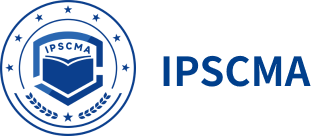In today's continuous transformation of the global supply chain, procurement management has transformed from a traditional cost control function to an important driving force for the strategic value of enterprises. According to Deloitte's 2023 Global Procurement Outlook report, more than 75% of enterprises are accelerating the digital transformation of procurement to cope with challenges such as supply chain disruptions and fluctuating raw material prices. With the in-depth application of new technologies such as artificial intelligence and big data, procurement management is ushering in an unprecedented period of innovation opportunities. This article will delve into the evolution trend, implementation strategy and future development direction of modern procurement management.
While traditional procurement management has focused on price negotiation and supplier management, today's procurement function has undergone a qualitative transformation. According to recent research from McKinsey & Company, excellent procurement management can generate 4-6% profit growth for companies. Strategic sourcing not only focuses on cost optimization, but also emphasizes the establishment of long-term strategic partnerships with suppliers to promote product innovation and sustainable development.
In terms of supply chain resilience, the procurement department is shifting from single-supplier management to diversified supply network construction. According to PwC's 2023 survey data, 67% of companies are redesigning their supplier layout, and 31% have started to implement "China+1" or "regional diversification" strategies to diversify supply chain risks.
Digital transformation is reshaping every aspect of the procurement process. From demand forecasting and supplier selection to contract management and payment settlement, intelligent tools are significantly improving procurement efficiency. Accenture Consulting's case study shows that companies that adopt an intelligent procurement platform can reduce transaction costs by 40% and shorten procurement cycles by more than 50%.
The use of artificial intelligence in procurement is rapidly gaining popularity. Predictive analytics can help companies identify supply risks in advance, and machine learning algorithms can optimize supplier selection and price negotiation strategies. Gartner predicts that by 2025, more than 60% of large enterprises will use AI in their procurement processes.
Blockchain technology has revolutionized supply chain transparency. With distributed ledger technology, every step of a procurement transaction can be traced and verified. According to data from the IBM Institute for Business Value, blockchain can help enterprises reduce supply chain management costs by 31% and improve supply chain visibility by more than 95%.
Internet of Things (IoT) technology enables real-time monitoring of procurement logistics. Smart sensors can continuously track key indicators such as cargo status and storage environment to effectively prevent supply disruptions. Studies have shown that IoT technology can help companies reduce inventory costs by 20% and improve supply chain responsiveness by 15%.
Building a digital procurement system requires systematic planning. First, companies should conduct an end-to-end review of the procurement process to identify key pain points and optimization opportunities. Second, establish a unified procurement data platform to integrate supplier information, contract data and market intelligence. Finally, through continuous talent training and change management, we ensure the smooth implementation of new technologies.
risk managementIt is an important part of procurement transformation. It is recommended that enterprises establish a "three lines of defense" model: the first line of defense is the daily risk control of the business department; The second line of defense is the supervision of a professional risk control team; The third line of defense is independent audits. Through a multi-level risk control system, procurement risks are effectively prevented. Supplier relationship management requires innovative thinking. Shift from traditional competitive negotiation to strategic synergy and build innovation alliances with key suppliers. Research shows that enterprises that adopt the collaborative innovation model can shorten the new product development cycle by 30% and increase the innovation success rate by 40%.
Looking forward to the future, procurement management will show the following trends: 1) The degree of intelligence will be further improved, and AI-enabled decision-making will become the standard; 2) The concept of sustainable procurement is deeply rooted in the hearts of the people, and carbon footprint management has become a new focus; 3) Ecosystem thinking dominates procurement strategy, and collaborative innovation will create greater value.
In a business environment full of uncertainties, excellent procurement management is becoming an important source of core competitiveness for enterprises. Through digital transformation, innovative technology application and strategic thinking upgrades, the procurement function will continue to create greater strategic value for the enterprise.
